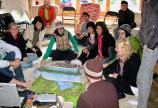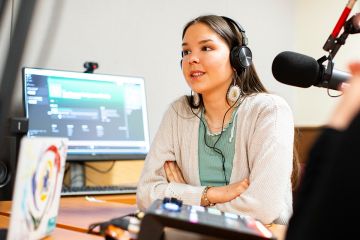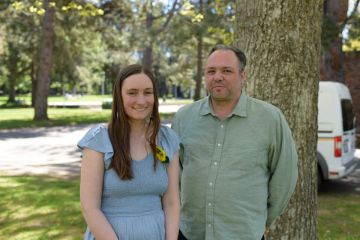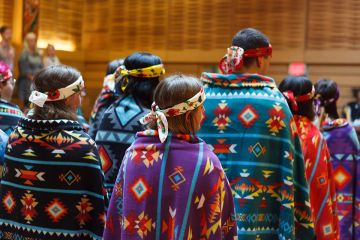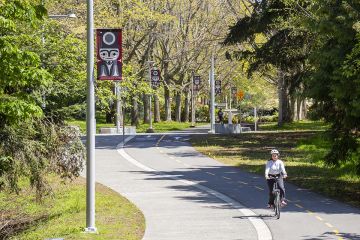New eyes on social gaps and opportunities
- Anne MacLaurin and Alexandra Haupt

Student projects focused on food security, affordable housing, Indigenous issues and renewable energy
As an instructor who is passionate about community engagement, Ana María Peredo saw a new opportunity despite the pandemic to engage her Environmental Studies 406 “Alternative Economies for Social Transformation” class in finding a meaningful community-led project.
The COVID-19 version of the course deepened the community-engaged learning dimension of a course that has been running since 2016, creating a novel experience for Peredo’s students.
Peredo is fascinated by the idea of mobilizing local citizens’ funds, so it was a natural fit to partner with the Vancouver Island Community Investment Cooperative (VICIC), a social investment organization that supports local, sustainable projects that focus on social and environmental benefits. In their evaluation, students were asked to focus on four key areas: food security/sovereignty, affordable housing, Indigenous issues and renewable energy. Their projects became part of a final report that was presented back to VICIC for potential social investments.
Student Isobel Simons and her group focused on local food security. Their research showed that small business loans and equity-based investment for local, sustainable farmers would fill a funding gap that is important for small farmers to scale up their operations to meet demand.
According to Simons, “small farms with community- and ecology-oriented mindsets are essential to sustainable food systems and plenty of them exist, but a lack of investment limits their growth.”
“My message for decision-makers in the business community and in local municipal governments would just be to reiterate that community engagement is a uniquely valuable resource for local economic development,” adds Simons.
In the 240-page report, Peredo’s students gained real-world learning while assessing the gaps in social impact investing in the Vancouver Island region for VICIC.
“This is a classic win-win, where the students have learned something about an approach, and the product that they produced for their assignment is useful pretty much immediately to the people they’re working with—in this case, VICIC,” says VICIC board member Michael Hoebel.
This course, much like Peredo’s other community-engaged work, brings together the field of social economy while working towards social, cultural and environmental sustainability.
For environmental studies and gender studies student Sam Dillon, “through this class, I learned a considerable amount about what it is like to write for and be accountable to someone beyond just myself or a professor. I also gained a better understanding of how to write a formal report.”
Are you a student looking to get involved in this area? Email the Community-Engaged Learning Office at celc1@uvic.ca for more information on how you can get started.
Photos
In this story
Keywords: student life, environment, environmental studies, administrative
People: Ana Maria Peredo
Publication: The Ring

